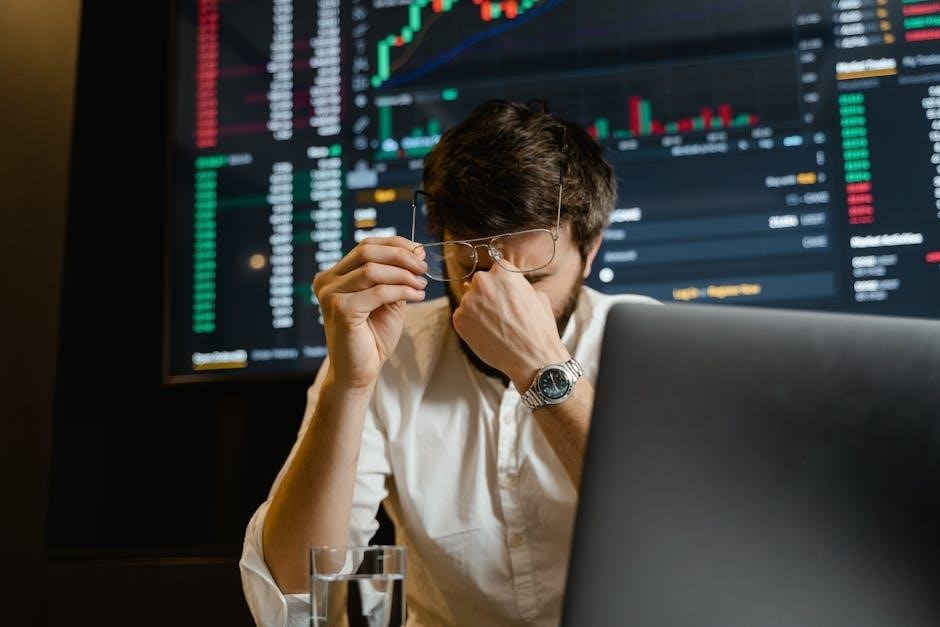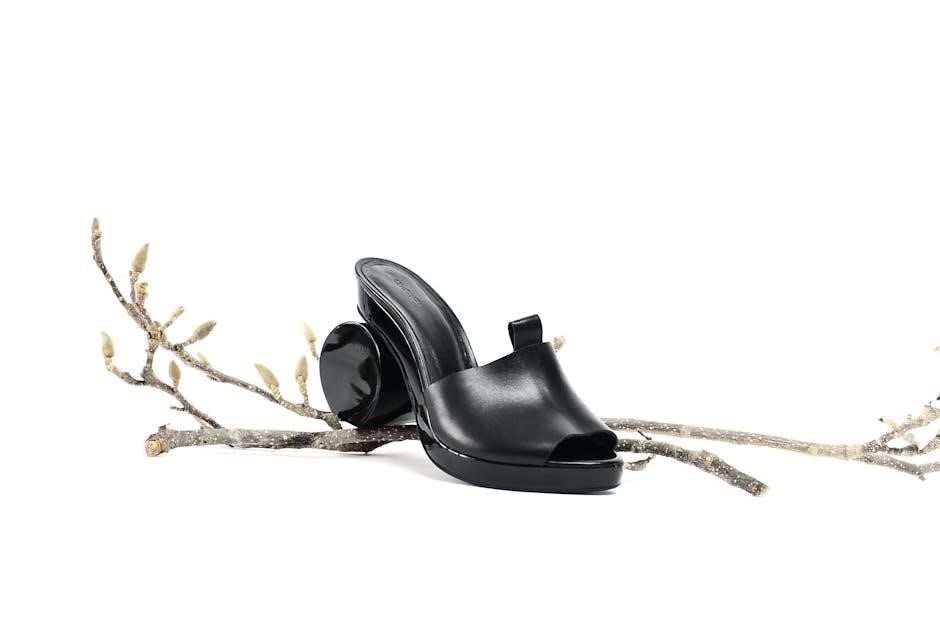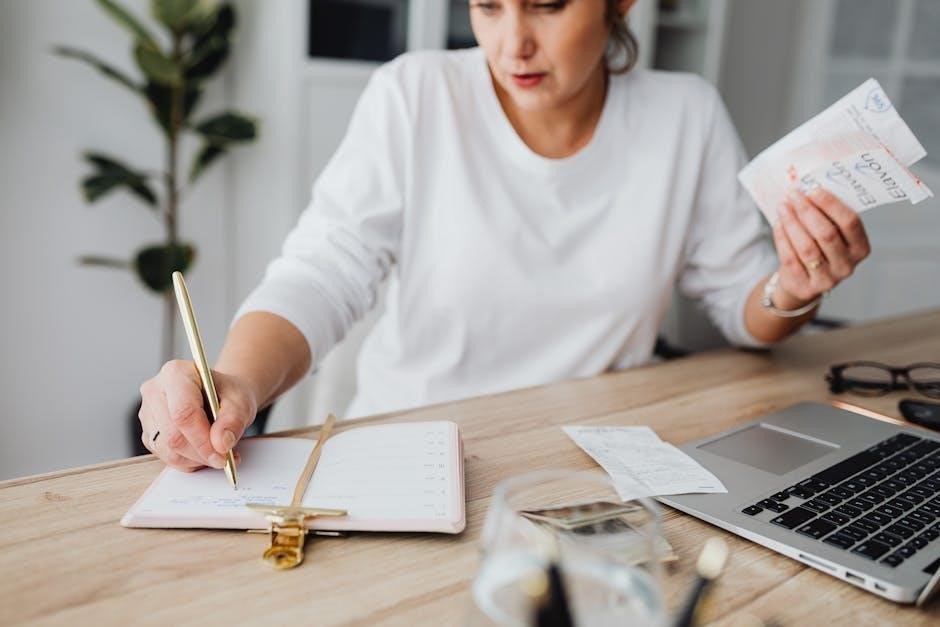Understanding sole trader expenses is crucial for tax compliance and financial health․ Tracking allowable expenses helps maximize tax savings and ensures accurate self-assessment tax returns․ Many sole traders miss out on deductions due to lack of knowledge about what can be claimed․ This guide provides a comprehensive overview of allowable expenses, helping sole traders make informed decisions and optimize their financial strategies effectively․
Understanding the Importance of Tracking Expenses
Tracking expenses is essential for sole traders to ensure compliance with tax obligations and maximize financial savings․ Accurate records help identify allowable deductions, reducing taxable income․ Many sole traders miss out on legitimate claims due to poor record-keeping․ By maintaining detailed accounts, sole traders can avoid overpaying taxes and ensure compliance with HMRC regulations․ This practice also provides clarity on business profitability and supports informed financial decision-making throughout the year․
Identifying Allowable Expenses for Sole Traders
Allowable expenses for sole traders are costs incurred wholly and exclusively for business purposes․ These can include equipment, travel, and professional fees․ Understanding what qualifies ensures accurate tax deductions and compliance with HMRC regulations․ This section explores the criteria for identifying allowable expenses, helping sole traders optimize their financial management and reduce taxable income effectively․
Wholly and Exclusively for Business Use
For an expense to qualify as allowable, it must be incurred wholly and exclusively for business purposes․ Personal use of items, such as a laptop or car, must be apportioned, with only the business percentage claimed․ HMRC requires clear evidence of business use, ensuring no personal benefit is derived․ This rule applies to all expenses, from travel costs to equipment purchases, to maintain compliance and avoid disallowances․ Accurate records are essential to support these claims․
Common Categories of Allowable Expenses

Common allowable expenses for sole traders include home office costs, travel expenses, equipment, and professional fees․ Home office expenses cover utilities and rent proportionate to business use․ Travel costs, such as fuel and public transport, are deductible for business trips․ Equipment and supplies, like computers and stationery, qualify if used solely for business․ Professional fees, such as accountants and legal services, are also claimable․ These categories help reduce taxable income effectively, ensuring compliance with HMRC guidelines․

Common Sole Trader Expenses List
- Home office expenses, including utilities and rent proportionate to business use․
- Travel costs, such as fuel, public transport, and business-related mileage․
- Equipment and supplies, like computers, software, and stationery․
- Professional fees, including accountants and legal services;
Home Office Expenses
Home office expenses can be claimed if they are used wholly and exclusively for business purposes․ This includes utilities, rent, and internet costs․ If the space is used personally, expenses must be apportioned․ HMRC allows a flat rate deduction based on the number of hours worked from home, simplifying record-keeping․ Accurate documentation is essential to ensure compliance and maximize tax savings․
Travel and Transportation Costs
Travel and transportation costs incurred solely for business purposes are allowable expenses․ This includes train tickets, mileage for business trips, hotel stays, and meals during business travel․ However, personal travel expenses cannot be claimed․ HMRC allows mileage claims at approved rates, and receipts must be kept for all expenses․ Ensure expenses are separated into personal and business use if duality exists․ Accurate documentation is essential for valid claims․
Equipment and Supplies
Equipment and supplies purchased for business use are allowable expenses․ This includes computers, printers, office supplies, and tools specific to your trade․ Items used partially for personal purposes require apportionment, with only the business proportion eligible for deduction․ Receipts and records must be maintained to support claims․ Ensuring items are bought wholly for business use simplifies the process, maximizing tax savings and compliance with HMRC regulations․ Proper documentation is essential for valid expense claims․
Professional Fees and Services
Professional fees and services, such as accountancy costs, legal fees, and business consultancy charges, are allowable expenses for sole traders․ These must be incurred wholly and exclusively for business purposes to qualify for tax deduction․ Software subscriptions, training courses, and professional memberships also fall under this category․ Maintaining records of these expenses is essential to support claims and ensure compliance with tax regulations, maximizing potential savings and streamlining financial management․
Non-Allowable Expenses for Sole Traders
Non-allowable expenses for sole traders include fines, penalties, and personal costs․ These cannot be deducted from taxable income, ensuring accurate tax reporting and compliance․
Understanding What Cannot Be Claimed
Certain expenses are not deductible for sole traders, such as fines, penalties, and personal costs․ These cannot be claimed as they do not qualify as business-related expenses․ Additionally, costs incurred for dual purposes require clear apportionment, with only the business portion eligible for deduction․ Understanding these distinctions is essential for accurate tax compliance and avoiding over-claiming deductions․
Common Non-Allowable Expenses
Certain expenses are not deductible for sole traders, such as parking fines, speeding tickets, and late VAT payments․ Personal purchases, like everyday clothing, and non-business-related entertaining are also ineligible․ HMRC disallows these expenses as they are not wholly and exclusively for business use․ Understanding these restrictions helps avoid over-claiming deductions and ensures compliance with tax regulations․

Calculating Partial Expenses
When expenses serve both personal and business purposes, sole traders must calculate the business portion․ Methods include apportionment based on usage and flat rate allowances․ For example, claiming 60% of a laptop’s cost if used 60% for business ensures compliance․
Apportioning Personal and Business Use
When items are used for both personal and business purposes, sole traders must apportion costs․ For example, if a laptop is used 60% for business, only 60% of its cost can be claimed․ This applies to cars, phones, and home office spaces․ Accurate records are essential to support these claims, ensuring compliance with HMRC requirements․ Proper apportionment avoids over-claiming and ensures only legitimate business expenses are deducted․
Using Flat Rates for Simplified Claims
Sole traders can use flat rates for simplified expense claims, reducing administrative burdens․ HMRC allows flat rates for cars based on mileage, while home office expenses can be claimed using flat £10-£26 per month․ This method avoids detailed calculations, saving time and minimizing errors․ Flat rates are ideal for small, consistent expenses, helping sole traders efficiently manage their tax deductions without extensive record-keeping․ However, they may not always provide the maximum possible deduction․

Record-Keeping and Documentation
Maintaining accurate records is essential for sole traders to support expense claims․ Keep receipts, invoices, and bank statements, and use tools like spreadsheets or apps to track income and expenses․ HMRC requires proof of all claims, so organized documentation is vital for compliance and avoiding disputes․
Importance of Maintaining Accurate Records
Maintaining accurate records is vital for sole traders to ensure compliance with tax regulations and support expense claims․ Organized documentation helps prevent errors, audits, and penalties․ By keeping receipts, invoices, and bank statements, sole traders can easily calculate taxable profits and verify deductions; Accurate records also reduce the risk of overpaying taxes and ensure claims are valid․ Using tools like spreadsheets or expense-tracking apps can streamline the process and improve financial clarity․
Tools and Methods for Tracking Expenses
Effective expense tracking is essential for sole traders․ Digital tools like QuickBooks, Xero, and Coconut offer streamlined solutions for recording and categorizing expenses․ Traditional methods, such as spreadsheets or receipt folders, are also viable․ These tools help reduce errors, save time, and ensure accurate tax returns․ By maintaining organized records, sole traders can easily identify deductions and comply with HMRC requirements, avoiding potential penalties and audits․
Tax Forms and Reporting
Sole traders must report expenses on their Self Assessment tax return․ Accurate records and timely submissions ensure compliance with HMRC requirements, avoiding penalties and audits․
Necessary Forms for Expense Claims
When claiming expenses as a sole trader, it is essential to use the correct HMRC forms․ The Self Assessment tax return (SA100) is the primary form for reporting income and expenses․ Additionally, the SA103 form is specifically used for self-employed individuals to detail business income and allowable expenses․ Supplementary forms like the SA108 may be required for capital allowances․ Accurate completion of these forms ensures compliance with HMRC regulations and avoids penalties․ Proper documentation, including receipts and invoices, must support all expense claims to validate deductions․
Guidelines for Accurate Reporting
Accurate reporting of sole trader expenses is crucial for compliance with HMRC regulations․ Maintain detailed records, including receipts and invoices, to support all expense claims․ Ensure expenses are correctly categorized and comply with HMRC’s allowable expense guidelines․ Use Flat Rate expenses for simplified claims where applicable․ Regularly review and update financial records to avoid errors․ If unsure about any aspect, consult a tax professional to ensure compliance and prevent potential penalties․ This ensures accurate and lawful tax reporting․
Maximizing tax savings through proper expense management is essential for sole traders․ Accurate reporting and organized records ensure compliance, reducing tax liabilities and future-proofing your financial health effectively․
Maximizing Tax Savings Through Proper Expense Management
Accurate tracking and reporting of allowable expenses are vital for sole traders to minimize tax liabilities․ By understanding what can be claimed and maintaining proper records, sole traders ensure compliance and maximize savings․ Utilizing tools for expense tracking and seeking professional advice can further streamline the process, ensuring no eligible deductions are missed․ This approach not only reduces tax bills but also provides peace of mind, knowing financial obligations are met efficiently․